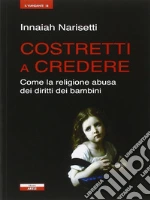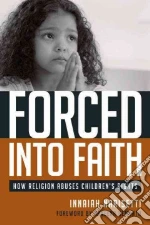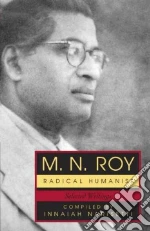 Libri di Innaiah Narisetti su Unilibro.it
)
Libri di Innaiah Narisetti su Unilibro.it
)
|
|
2013 |
 Title :
Costretti a credere. Come la religione abusa dei diritti dei bambini
Title :
Costretti a credere. Come la religione abusa dei diritti dei bambiniAuthor: Narisetti Innaiah Publisher: Ariele € 14,00
|
|
|
1910 |
 Title :
The Truth About the Gita
Title :
The Truth About the GitaAuthor: Narla V. R., Narisetti Innaiah (FRW) Publisher: Prometheus Books Narla (1908-1985), an Indian journalist/humanist, offers a rare critical appraisal of The Bhagavad Gita, a principal Hindu sacred text. Focusing particularly on the Mahabharata epic of the life of Krishna, he points out inconsistencies noted by scholars; condemns the Gita's continuing negative influence on Indian life for its condoning of violence, immorality, the caste system, and ideas about karma and reincarnation; and compares interpretations by Tilak, Aurobindo, and Gandhi. Originally published in Hyderabad by the Narla Institute of New Thought, 1988. Annotation ©2011 Book News, Inc., Portland, OR (booknews.com) € 16,10
|
|
|
2009 |
 Title :
Forced Into Faith
Title :
Forced Into FaithAuthor: Narisetti Innaiah, Hemanth Naveena (FRW) Publisher: Prometheus Books From the Publisher: In 1989, the United Nations General Assembly adopted the Convention on the Rights of the Child, proclaiming elementary rights for children worldwide. Among other provisions, the Convention safeguards children's religious freedom and their freedom of thought. But because child rearing is recognized as the primary responsibility of parents, the question of what children are raised to believe is left up to their mothers and fathers. In this controversial critique of the UN Convention, humanist Innaiah Narisetti forcefully argues that children's rights should include complete freedom from religious belief. Narisetti proposes that the choice of religious belief or nonbelief should be deferred till adulthood. Just as most societies recognize that marriage and civic responsibilities such as voting are adult prerogatives that children should not be allowed to exercise, so should the choice of a belief system wait till an individual is competent to exercise mature judgment. Narisetti cites numerous examples of the ways in which early religious indoctrination leads to later negative attitudes such as intolerance, suspicion, and outright hostility directed toward those who believe differently. He also notes that religion provides a cloak for such obvious evils as sexual abuse, genital mutilation, and corporal punishment of children. While most societies are quick to condemn such abuses, Narisetti suggests that they should be willing to take the next logical step and look to the role of religionin such problems. Including the complete text of the Convention on the Rights of the Child, this candid, unflinching critique of childhood religious education will provoke much thoughtful discussion. € 9,20
|
|
|
2004 |
 Title :
M.N. Roy: Radical Humanist
Title :
M.N. Roy: Radical HumanistAuthor: Roy M. N., Narisetti Innaiah (COM), Innaiah N. Publisher: Random House Inc While the West largely paid attention to its own experiences in humanism, India and other parts of the world were also producing humanist scholars and philosophers. Roy, who considered humanism to be scientific, integral to other disciplines, and inclusive to all cultures, was a writer and activist during the British rule of India. His efforts in politics, in which he advocated radical democracy, led to six years of incarceration. In an article, several manifestos, and his most famous work 'Principles of Radical Democracy: 22 Theses,' Roy explains why average people should receive sufficient education to become independent and critical thinkers, quite apart from dependence on secular authority and the supernatural. Annotation ©2004 Book News, Inc., Portland, OR (booknews.com) € 30,50
|